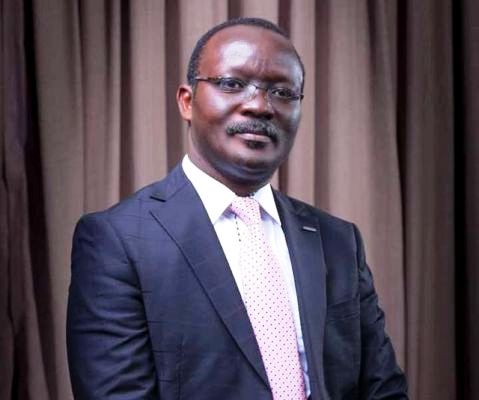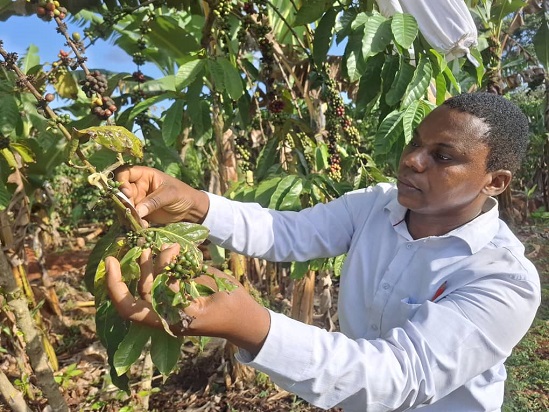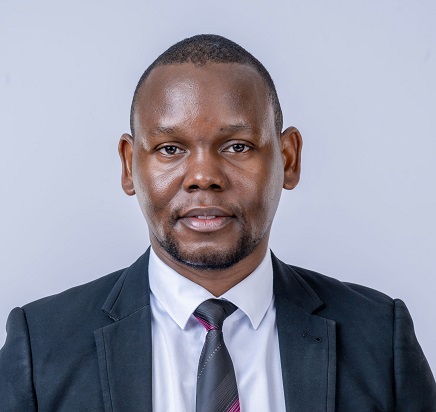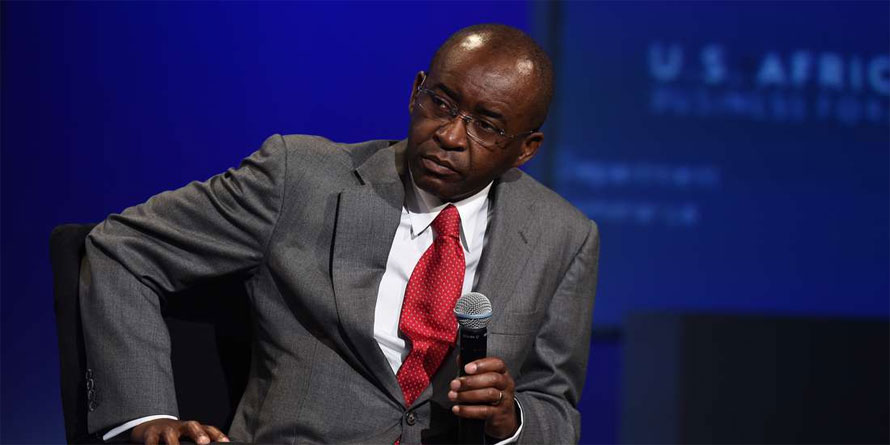NWSC boss Sliver Mugisha
The COVID-19 pandemic has adversely affected both private and public entities.
One of the Governments owned an institution offering an essential service that has been hit hard by COVID-19 induced lockdown is National Water and Sewerage Corporation (NWSC).
In an interview, Dr Silver Mugisha, the Executive Director at NWSC reveals how some Ugandans with capacity to pay their water bills are taking advantage of the situation to evade payments.
In this interview, Mugisha also responds to the proposal by Parliament to have government give free water to Ugandans.
Below are the details of the interview;
How is NWSC managing operations in this COVID-19 crisis?
Like any other organization, it is tough navigating through the challenges orchestrated by COVID-19 pandemic at NWSC. We are not raising the incomes as expected and the less we are generating, we cannot collect all of it due to economic hardships faced by segments of our clients.
We want to thank our esteemed customers that have moved along with us, clearing their water bills which has enabled the corporation to continue meeting costs of essential operational inputs. We have seen some, of course, who want to take advantage of the COVID-19 situation to evade payments despite having capacity to pay.
This is not good and does not build our country. The net effect of all this, is that NWSC continues to operate in a resilient manner to ensure that our esteemed customers continue to get services.
We have a business continuity plan that we are following, modulated by continuous adjustments as a result of measures, which are periodically, announced by H.E the President and Ministry of Health.
What do you make of the recent call by Parliament to supply free water and power?
If the underlying objective of the call is to make it possible for Ugandans to cope with challenges paused by COVID-19 pandemic, there is no problem with the objective.
However, the matter needs to be given a holistic thought in a manner that creates a sustainable solution.
The law that establishes NWSC as a body corporate enjoins it to operate in a financially and commercially viable manner. That means that a call like that requires a third party to meet the cost of water bills generated by NWSC.
The corporation needs financial resources to meet the cost of producing and distributing water, leave alone the cost of extending services to those that are not yet served. The most critical inputs include chemicals that have to be imported, electricity, repair materials, fuel and lubricants, security, staff costs, office support and ICT.
These inputs are needed whether there is COVID-19 or not. These are also needed whether NWSC is a Government-owned institution or not. Therefore, in situations like this, I would opine that let us be more innovative and seek subsidies for the most vulnerable groups while encouraging those that are able to pay their water bills to do so. It should be noted that the majority of Ugandans that are accessible to piped water are middle to high income category who are able to pay their bills. The rest of the Ugandans, especially in the rural neighborhoods are not accessible to piped water services.
Do you think Government has given you adequate support during this COVID-19?
Absolutely! We are working closely with Cabinet, Parliament, Ministry of Water and Environment, Ministry of Finance, donors and the National Taskforce to see how our business continuity plan continues to be, adequately, supported.
How are you dealing with so many forces that are interested in big procurements?
Well, it is a challenge that every CEO in the same capacity like mine faces. There are so many actors out there that want to win tenders outside the precincts of a procurement process as dictated by PPDA law and other associated procurement guidelines. At a certain point, someone wanted me to intervene and force a bidder who was Ushs 80Bn/= above the bid price of the best evaluated bidder. I explained that accounting officers have no power to administer illegalities. That incidence caused me enormous stress, involving a raft of corruptions allegations to the IGG and donors. Investigations were carried out and there was no evidence of wrongdoing. In this case, it was a strong conscience that helped us. But like I said, what keeps us strong is our belief in doing things right and rejecting capture by ill-intentioned elements.
Are you considering reduction of staff to reduce costs?
At NWSC, we value human capital as an important factor of production. We have reached where we are because of our committed staff. Therefore, we cannot think of reducing staff as the first call of action due to COVID-19 pandemic. Instead, we work collectively to explore other areas of cost containment, while preserving staff jobs. Our staff have been extremely cooperative in this endeavor and so far, so good. Of course, like any other organization, we have some “rotten apples” among our staff: those whose values are at variance with the corporation’s values. For this category, we apply organic administrative measures in line with our Human Resources manual. It is such staff that occasionally “cook” false allegations and circulate them to the public with the intention of causing false propositions. For example, recently, someone connived with some staff of the telephone companies to obtain a print out of mobile money transactions of my telephone line that is registered in NWSC names. He was alleging that I use NWSC funds to assist my friends! Can you imagine that? NWSC’s mobile money transactions are only limited to collection of funds but not paying out of money to anyone. So, you can imagine such a ridiculous allegation.
How are you looking at post COVID-19 era?
We all have to embrace the new normal. We have to review our expenditure behavior and prioritize areas that support the real economy as envisioned by H.E the President. Specifically, at NWSC, we are restructuring our expenditure structure to put particular emphasis on water and sewerage infrastructure development. In so doing, we want to maintain the momentum to extend water to those who are not yet served and build sufficient capacity to work with financial markets to extend infrastructure to new industrial parks. This will call for unfettered discipline in containing recurrent expenditure, restricting it to only essential factors of production. This will, in turn, require mindset change to adjust to the new ways of business conduct.





